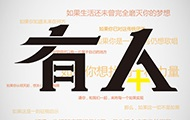Observation on Pizza Hut’s Shrimp Balls Affair in Accordance with Article 55 of Civil Procedural Law
On June 23, 2013, Xie Yan, the legal representative of the non-profit organization One Plus One Cultural Service Center for the Disabled in Beijing's Fengtai District (hereinafter referred to as One Plus One) and two persons with low vision, Yang Qingfeng and Cai Cong, submitted applications for a case, as organizational and personal identities respectively, to the case filing chamber belonging to the people's court of Fengtai district. The application was in reference to the situation in which an advertisement released by Pizza Hut for shrimp balls damaged the general personality rights and reputation of the blind. Finally, the case filing chamber declined to accept the case. Since the formal implementation of the revised Civil Procedural Law from January 2003, this is the first attempt of public interest litigation in China's disability field, as well as the first attempt by One Plus One.
The new Article 55 of Civil Procedural Law stipulates: “Authorities specified by laws and relevant organizations can lodge a complaint to the people's court when finding behaviors harming public interest such as polluting the environment, infringing upon the lawful rights and interests of consumers and other behaviors.” This article has resolved the previous situation of insufficient legal protection for the disabled and other public interest areas. But at the implementation level, especially in the field of disability rights, there are still many problems yet to be resolved.
I. How to understand “Authorities” as specified by laws and relevant organizations
This revised Civil Procedural Law has created a new public interest litigation system which has played an important role in protecting social and public interests. However, the positioning of the plaintiff qualifications in the civil public interest litigation is still relatively obscure. This is a main obstacle of the development of the public interest litigation system. With regard to “Authorities specified by laws and relevant organizations”, there is controversy between officials and private persons. The argument is between whether this expression should mean authorities specified by laws plus relevant organizations specified by laws, or authorities specified by laws plus relevant organizations.
In the field of environmental protection, the Environmental Protection Law, which is being revised, plans to add a regulation. The regulation would read: “When faced with actions polluting the environment, ecological damage and harming the public interest, the All-China Environment Federation and environment federations founded in provinces, municipalities and municipalities directly under the central government can file an action in a people's court. If the above regulation is approved, it means that the All-China Environment Federation, who has a semi-official background, will be the only subject to have the right to file an environmental public interest litigation. This will not only result in strong protests from non-governmental environmental protection organizations, but would also surprise the legal specialists who are contributing to the construction of a public interest litigation system.
In practice, the positive effect of having an administrative organ as the main body of a public welfare litigation is obvious. Yet, there may be some harmful influences. It could result in abuse of power by administrative organs, abuse of power for personal gain, local protectionism and other negative influences. Or they could elect not to act in order to evade their statutory duties. Therefore, while developing the main body of a civil public welfare litigation, we must give full attention to the supervisory role of procuratorial organs and other social organizations to guarantee that the administrative organ performs its reasonable and lawful duties and protects the public interest.
II. Scope of public interest litigation cases
In Article 55, the regulations are listed and summarized addressing actions which harm social public interest such as polluting the environment, infringing upon the lawful rights and interests of consumers and so on. Such regulations mainly include two meanings. One is when actions which pollute the environment or infringe upon the lawful rights and interests of consumers have harmed the public interest; we can file a public interest litigation for protecting public interest. The other one is when faced with other behaviors of harming social public interest, we can also file a public interest litigation based on the article.
There are always various controversies within the jurisprudential field on how to define the specific meaning of public interest. From the point of legislation in our country, many substantial laws and procedural laws include articles designed to protect public interest. Public interest refers to various legal fields. The specific situations in which public interest may be harmed can differ. Subjects who have supervision and management responsibility are different. Therefore, if someone can file a public interest litigation in accordance with the damage to public interest in some fields, the laws are toned to regulate subjects who have plaintiff qualifications respectively according to different situations.
If there is insufficient protection of the public interest and there is no specified entity to manage this, the public interest is more easily susceptible to damage. Regarding disability-related education and examination, barrier-free facilities, etc., there are a lot of instances of malfeasance that have to be solved by public interest litigation. Faced with all the problems above, the Consumer's Interest Protection Law and Environmental Protection Law should be revised to resolve these issues. We are looking forward to further judicial interpretation stipulating the Protection Law of Disabilities.





